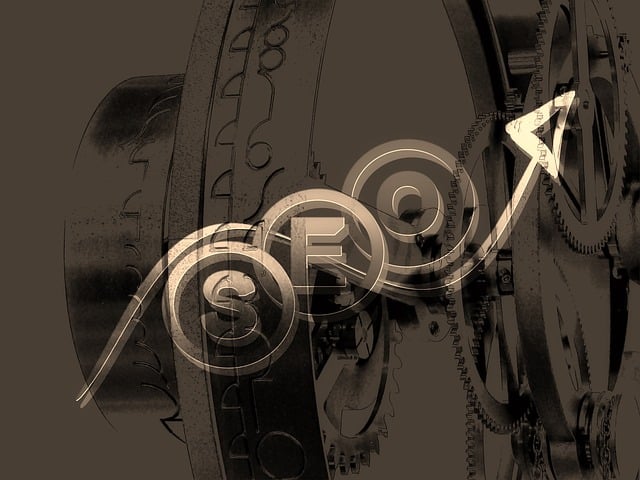In today's competitive online retail landscape, a specialized SEO Agency for E-commerce Websites is key to success. These agencies optimize websites for search engines, enhancing visibility and driving traffic through strategies like keyword optimization, mobile-friendliness, high-quality backlinks, and site speed improvements. They leverage data-driven methods and stay updated on algorithm trends to keep e-commerce stores ahead of the competition. By offering services from on-page to off-page SEO, they improve search rankings and boost sales. Measuring success through KPIs, agencies track organic traffic growth, conversion rates, and average session duration to refine strategies and drive continuous improvement in the digital marketplace.
In today’s digital era, a robust online presence is non-negotiable for e-commerce success. This introduces the paramount importance of Full-Service E-commerce SEO, where strategic optimization drives visibility and sales. Understanding fundamental SEO concepts and choosing a dedicated SEO Agency for E-commerce Websites can be game-changers. This article delves into essential components like on-site and off-site strategies, key performance indicators (KPIs), and best practices to ensure your e-commerce platform flourishes in a competitive landscape.
Understanding E-commerce SEO: The Basics

In the dynamic landscape of online retail, a successful e-commerce website is no longer just about attractive design and intuitive navigation. It’s about visibility, traffic, and conversions—and that’s where an SEO Agency for E-commerce Websites steps in. E-commerce SEO, or Search Engine Optimization, is the practice of enhancing a website’s online visibility within search engine results pages (SERPs), specifically for e-commerce platforms. It involves understanding complex algorithms to ensure your products are easily discoverable by potential customers browsing through Google, Bing, or any other search engine.
An effective e-commerce SEO strategy encompasses more than just keyword optimization. It includes optimizing product titles and descriptions, ensuring mobile-friendliness, leveraging high-quality backlinks from relevant websites, and improving site speed—all to create a seamless user experience that drives sales. An SEO Agency for E-commerce Websites specializes in these areas, employing data-driven methods and staying abreast of the latest trends and updates in search engine algorithms to ensure your online store stays ahead of the competition.
Why Choose a Dedicated SEO Agency for E-commerce?

In today’s digital landscape, an effective SEO strategy is paramount for e-commerce success. However, navigating the complex world of search engine optimization can be challenging and time-consuming, especially for businesses focused on driving sales and growth. This is where a dedicated SEO agency for e-commerce websites becomes invaluable.
Unlike general marketing agencies that offer a range of services, an SEO agency specializing in e-commerce has deep expertise in understanding the unique dynamics of online retail. They stay up-to-date with the latest algorithm changes, industry trends, and best practices specific to e-commerce platforms. By leveraging their specialized knowledge and tools, these agencies can optimize your website for both search engines and customers, driving increased organic traffic, higher rankings, and ultimately, more sales.
Key Services Offered by an E-commerce SEO Agency

When it comes to boosting the visibility and sales of your e-commerce website, an SEO agency specializing in e-commerce is your best ally. These experts offer a comprehensive suite of services tailored to meet the unique needs of online stores. The key services typically include on-page optimization, where they enhance product pages with targeted keywords, compelling meta tags, and structured data to improve search rankings. They also provide off-page optimization, such as high-quality backlink building, social media marketing, and influencer collaborations, to drive organic traffic and increase brand authority.
In addition, a top-tier e-commerce SEO agency assists with technical SEO, ensuring your website is fast, secure, and user-friendly. This involves optimizing site speed, implementing structured data markup for rich snippets, and improving mobile responsiveness. They also offer keyword research to identify high-value terms driving traffic in your niche, enabling strategic content creation and product listings that attract the right audience.
On-Site Optimization: Enhancing Your E-commerce Platform

Optimizing your e-commerce platform is a strategic step that forms the foundation of your online success, making it a crucial aspect for any business aiming to thrive in the digital marketplace. A top-notch SEO agency for e-commerce websites understands this and offers tailored solutions to enhance visibility and drive sales. On-site optimization involves refining various elements within your website to ensure it aligns with search engine algorithms and user expectations.
This includes optimizing product titles, descriptions, and tags, ensuring they are keyword-rich and accurately represent the offerings. A well-structured site navigation and internal linking strategy improve crawlability, helping search engines understand your content hierarchy. Additionally, mobile optimization is essential as more users shop via smartphones, requiring a seamless experience across devices.
Off-Site SEO Strategies for E-commerce Growth

In the competitive e-commerce landscape, an SEO agency specializing in e-commerce websites can be a game-changer. Off-site SEO strategies are pivotal for driving organic growth and establishing a strong online presence. These strategies focus on building high-quality backlinks, which signal to search engines that your website is authoritative and trustworthy.
E-commerce businesses can leverage guest blogging on relevant industry sites, ensuring their content reaches a wider audience while gaining valuable backlinks. Additionally, engaging in social media marketing not only boosts brand visibility but also encourages shareable content, potentially generating more links back to your site. Influencer partnerships and online reputation management are other effective tactics to enhance off-site SEO, fostering positive associations with your brand.
Measuring Success: Tracking KPIs for E-commerce SEO

Measuring success is paramount in e-commerce, and a robust SEO strategy isn’t complete without a comprehensive set of Key Performance Indicators (KPIs). These metrics offer insights into the effectiveness of your online store’s search engine optimization efforts, guiding adjustments to stay ahead in the competitive digital landscape. A reputable SEO agency for e-commerce websites will often track metrics like organic traffic growth, conversion rates, and average session duration.
Organic traffic, driven by high search engine rankings, indicates the visibility of your products to potential customers. Conversion rates reveal how well your website translates visitors into buyers. Meanwhile, average session duration shows the level of engagement with your site’s content. By analyzing these KPIs, an SEO agency can identify areas for improvement, whether it’s optimizing product descriptions, refining meta tags, or enhancing mobile usability, ultimately driving more sales and revenue.
Best Practices for Continuous E-commerce SEO Improvement

To ensure continuous improvement in e-commerce SEO, consider implementing best practices that drive organic traffic and boost sales. A top-tier SEO Agency for E-commerce Websites should prioritize keyword research to identify relevant search terms with high potential. Regularly update product descriptions, titles, and meta tags using these keywords to enhance visibility on search engines. Additionally, optimizing website speed is paramount; a fast-loading site improves user experience and signals to search engines that your e-commerce platform is reliable and efficient.
Content optimization plays a significant role in long-term SEO success. Create high-quality, informative content around products and industry trends, ensuring it’s optimized with relevant keywords. Integrate internal linking strategies to guide users and search engine crawlers through your site, improving navigation and reducing bounce rates. Regularly review and analyze website performance using analytics tools, identifying areas for improvement and staying ahead of algorithm updates.
